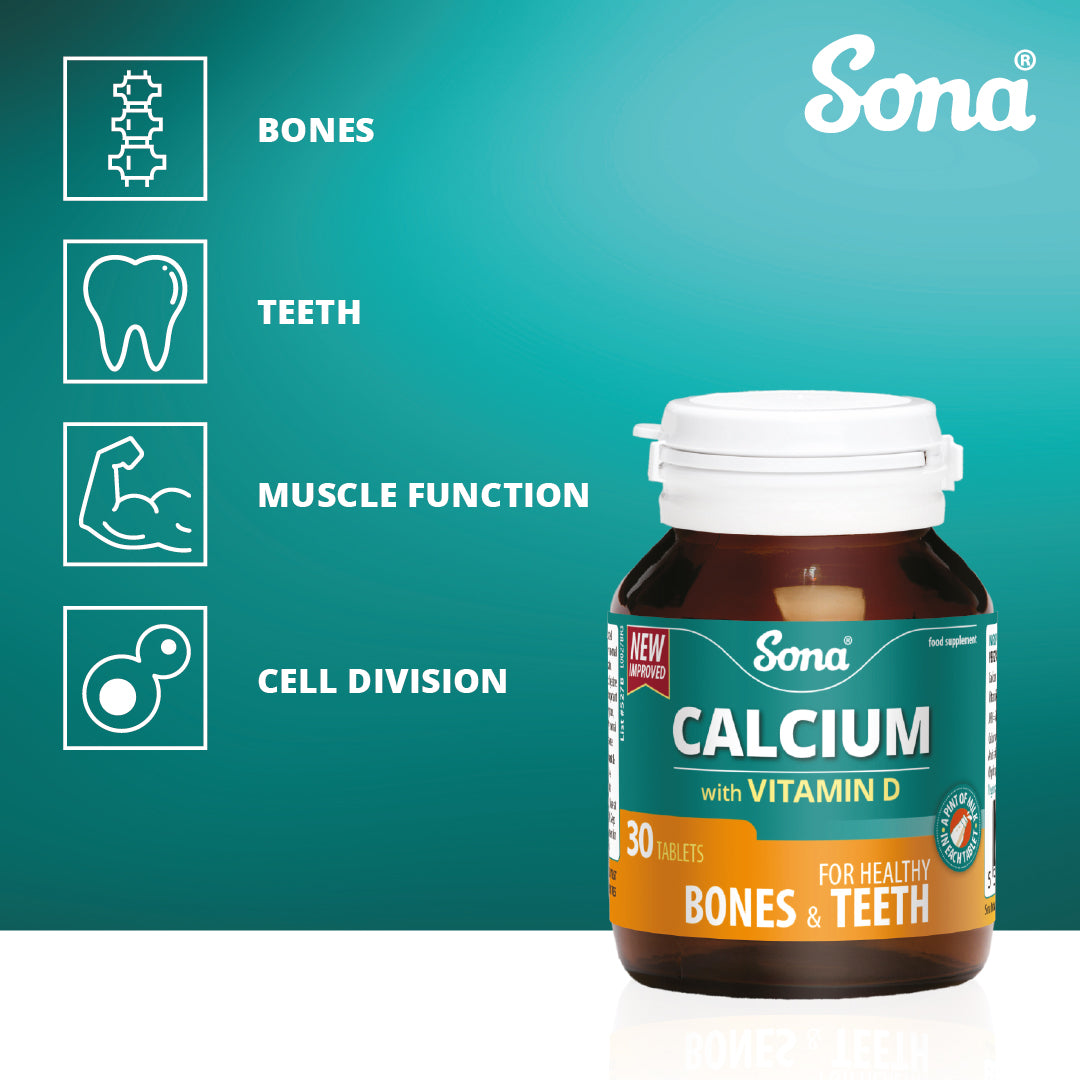
Vitamin D and calcium are important for the maintenance of normal bones and teeth, muscle function, and cell division. Calcium is also important for blood coagulation, function of digestive enzymes, neurotransmission, and energy.
Vitamin D is required for the absorption and utilisation of calcium and the maintenance of normal blood calcium concentration, as well as the normal function if the immune system and inflammatory response.
In this article you can find:
- What is vitamin D?
- What is calcium?
- Why is vitamin D required for calcium absorption?
What is vitamin D?
Vitamin D refers to a group of fat-soluble vitamins (vitamins that are absorbed along with dietary fat and can be stored in the body’s fatty tissue). In addition to promoting calcium absorption, utilisation of calcium, and maintaining normal blood calcium concentration, vitamin D is also needed for the absorption of phosphorus and plays a role in reducing inflammation as well as modulation of such processes as cell growth, neuromuscular and immune function, and glucose metabolism.
Sunlight is your best source of Vitamin D as it is manufactured in the body when your skin is exposed to the sun’s UVB rays. It can also be naturally found in some animal products, such as the flesh of fatty fish. Small amounts can also be found in beef, liver, cheese, and egg yolks. Vitamin D can also be found in mushrooms.
What is calcium?
Calcium is a mineral that is essential in our diet. It is the most abundant mineral in our body and makes up 1.5%-2% of the total human body. Calcium is intimately involved in the structures of bone and teeth where 99% of it is stored.
Calcium plays a key role in numerous bodily functions. This includes helping to build bones and keep teeth healthy, regulating muscle contractions, and ensuring that blood clots normally. A deficiency in calcium can cause rickets in children, as well as osteomalacia or osteoporosis in adults. It may also result in periodontal disease, hyperactivity, anxiety, insomnia, and lead toxicity.
Calcium can be found in dairy products, green leafy vegetables, fish where you eat the bones, such as sardines and pilchards, as well as fortified foods products, including bread and soya drinks.
Why is vitamin D required for calcium absorption?
The human body requires vitamin D to absorb calcium. If one does not receive enough vitamin D, they will not be able to produce enough of the hormone calcitriol.
Calcitriol is the active form of vitamins D and is essential for calcium absorption and bone mineralization. Thereby, without enough of this hormone, an insufficient amount of calcium can be absrobed from the diet. This causes the body to draw calcium from its skeleton stores, weakening existing bone and preventing the development of new, strong bone.
Sona Calcium with Vitamin D contains 600mg of Calcium with added Vitamin D for optimum absorption. Individuals aged 12 and above should take one tablet daily. Those who are pregnant or lactating, or aged 50 and above, should take one tablet twice daily, or as directed by a health professional.
References
- Calcium and Vitamin D: Important at Every Age | NIH Osteoporosis and Related Bone Diseases National Resource Center. (2021). Retrieved 21 June 2021, from https://www.bones.nih.gov/health-info/bone/bone-health/nutrition/calcium-and-vitamin-d-important-every-age.
- Ding, D., Lo, T., Wu, T., & Li, P. (2019). Effect of Vitamin D supplementation during pregnancy on maternal and perinatal outcomes. Tzu Chi Medical Journal, 31(4), 201. doi: 10.4103/tcmj.tcmj_32_19.
- EHRLICH, G. (2010). Sunshine and Vitamin D. A Comprehensive Guide to the Benefits of the “Sunshine Vitamin”. The Journal Of Rheumatology, 37(2), 475-475. doi: 10.3899/jrheum.091173.
- Office of Dietary Supplements - Vitamin D. (2021). Retrieved 21 June 2021, from https://ods.od.nih.gov/factsheets/vitamind-healthprofessional/.
- Vitamins and minerals - Vitamin D. (2021). Retrieved 21 June 2021, from https://www.nhs.uk/conditions/vitamins-and-minerals/vitamin-d/.
